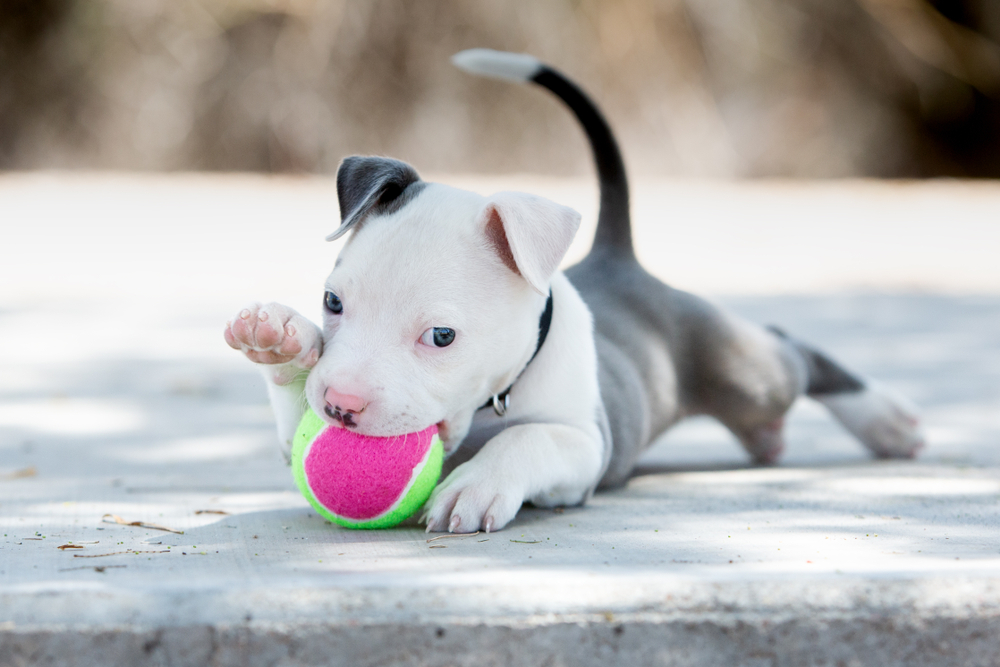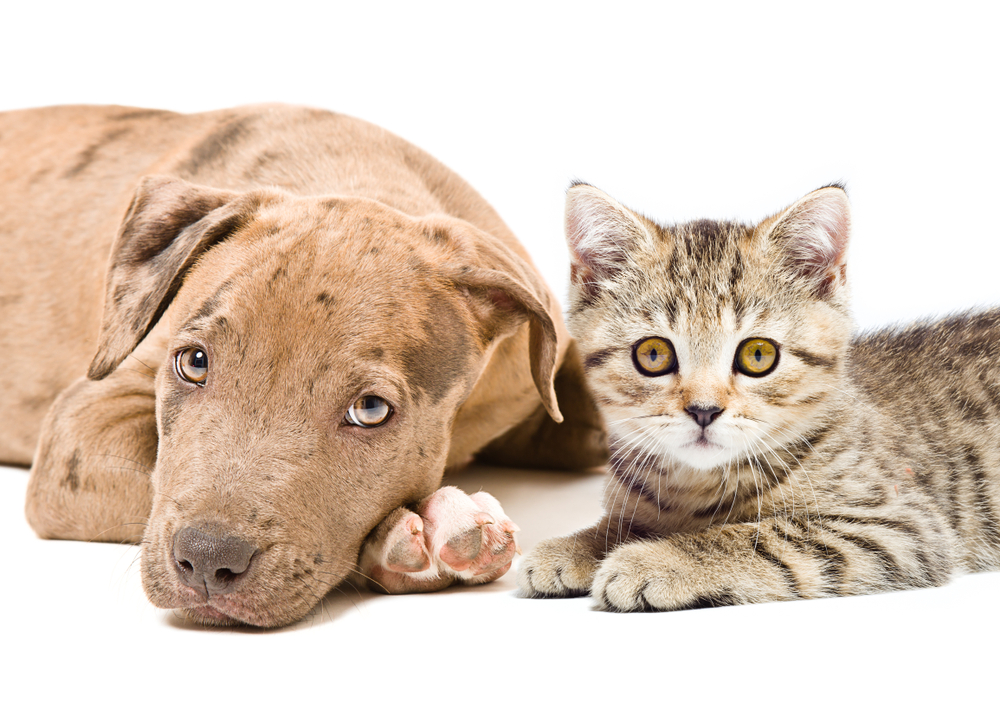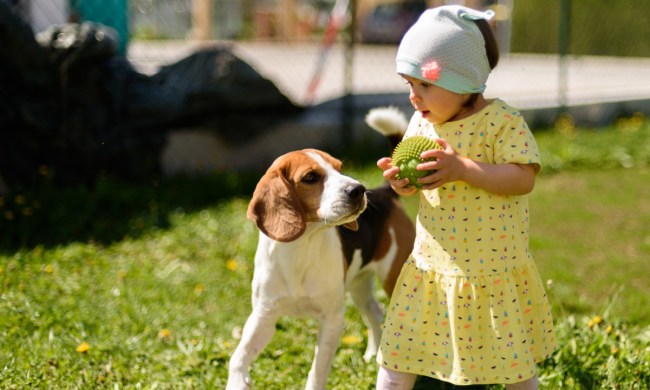
Often maligned as the world’s most dangerous dogs, pit bulls have been included in breed-specific legislation — or BSL — in over 900 cities. While these laws don’t always specify pits, their language makes one thing clear: You aren’t welcome here if you own a pit bull. BSL also targets breeds like Dobermans and Rottweilers. Arkansas, Iowa, Kansas, Kentucky, Louisiana, Michigan, Mississippi, Missouri, and Wisconsin have the strictest BSLs in the country. Thanks to awareness campaigns on social media, anti-pit-bull legislation has been repealed in some areas, with over 59 cities overturning these outdated and inflammatory laws. That’s a helpful step, but pit bulls still get a bad rap. Is it warranted? Are pit bulls aggressive? We’ll bust the top four myths about pit bulls you probably still believe.
Myth #1: Pit bulls are all one breed
If you’ve ever marveled at how different two pit bulls look from each other, there’s a good reason they do. Bronwen Dickey, author of Pit Bull: The Battle over an American Icon, states that the pit bull isn’t one specific breed; rather, like a hound, it’s a type of dog.
Four breeds make up the pit bull type: the American bully, the American pit bull terrier, the American Staffordshire terrier, and the Staffordshire bull terrier. Interestingly, “pit bull” has become an umbrella term for any dog who looks like they’re one of the aforementioned breeds. As Dickey points out, many breeds who have been identified as pit bulls “don’t have any of those breeds in their DNA.”
Myth #2: Pit bulls are dangerous
Have you ever wondered, “Are pit bulls good family dogs?” According to research, their temperaments are better suited to family life than many popular breeds. Before dogfighting rings became wildly popular, pit bulls were known as a “nanny breed” because they form fast bonds with their families, especially children. Sadly, around 2,800 pit bulls are euthanized each day due to decades of rampant misinformation, horrific abuse, and pervasive greed.
Pit bulls are staunchly loyal, easy to train, tireless, and strong. The very traits that make them such devoted family members were twisted by dogfighters for personal gain. Damages to the pit bull’s reputation have had long-term ramifications for these pups. The ASPCA notes that modern-day pit bulls are descended from English bullbaiting dogs. Some were bred as fighters, while others were bred as working dogs famous for becoming affectionate companions. However, studies show that even pit bulls who were bred to fight aren’t naturally more aggressive toward their owners than other dogs. Improper handling and abuse, not genetics, cause aggressive behavior in dogs, including pit bulls.

Myth #3: Pit bulls don’t get along well with other pets
Many dogs, including pit bulls, Dobermans, German shepherds, and Siberian huskies, are branded as too dangerous to bring into a multi-pet household. That being said, the ASPCA describes well-trained pit bulls as “one of the most delightful, intelligent, and gentle dogs imaginable.”
Because many states, cities, and small towns have banned pit bulls and pit bull-type breeds, you should check local ordinances before you bring home a pit. Purchase from a thoroughly vetted breeder — or adopt from a rescue that knows your dog’s origins — to ensure you aren’t taking home a former fighting dog if you have other pets in your home.
Small dogs, cats, and even rabbits are frequently used as bait in dogfights, so an ex-fighter may react with aggression around other animals. It’s best to adopt a puppy, so you can ensure your pit bull receives adequate training and proper socialization.
As with any other new addition, you should introduce your pit bull to other family members slowly and supervise your pets at all times. Some pit bulls get along well with other dogs, cats, and rabbits, while others may prefer to be the only pet in the house. However, this is true of all dogs. When in doubt, consider muzzle conditioning while your pit bull is with other animals.
Myth #4: Pit bulls have locking jaws and 1,600 PSI
One of the most common myths about pit bulls is their jaws lock, enabling them to latch on and not let go. University of Georgia Professor Emeritus Dr. I. Lehr Brisbin says otherwise: Pit bulls “did not have any unique mechanism that would allow these dogs to lock their jaws.” Another misconception centers on a pit bull’s biting power; some claim it measures thousands of pounds of pressure per square inch (PSI), but these claims have no scientific basis whatsoever. In reality, a pit bull’s PSI is around 235, much lower than the Turkish Kangal’s impressive PSI of 734. German shepherds, bulldogs, and mastiffs also have a higher PSI than pit bulls, yet most people don’t fear and vilify them the way they do pit bulls.
Pit bulls aren’t bad dogs
If detractors are to be believed, pit bulls are the stuff of nightmares: They’ll attack small children, other animals, and even their own pet parents. The reality is far less worthy of clickbait news articles. Any dog can be aggressive if they’re mishandled, abused, or neglected. Proper socialization, consistent training, and patience are essential for any dog owner. Train your dog well, make introductions slowly, and you’ll see that a pit bull can become a loving, devoted member of the family.



